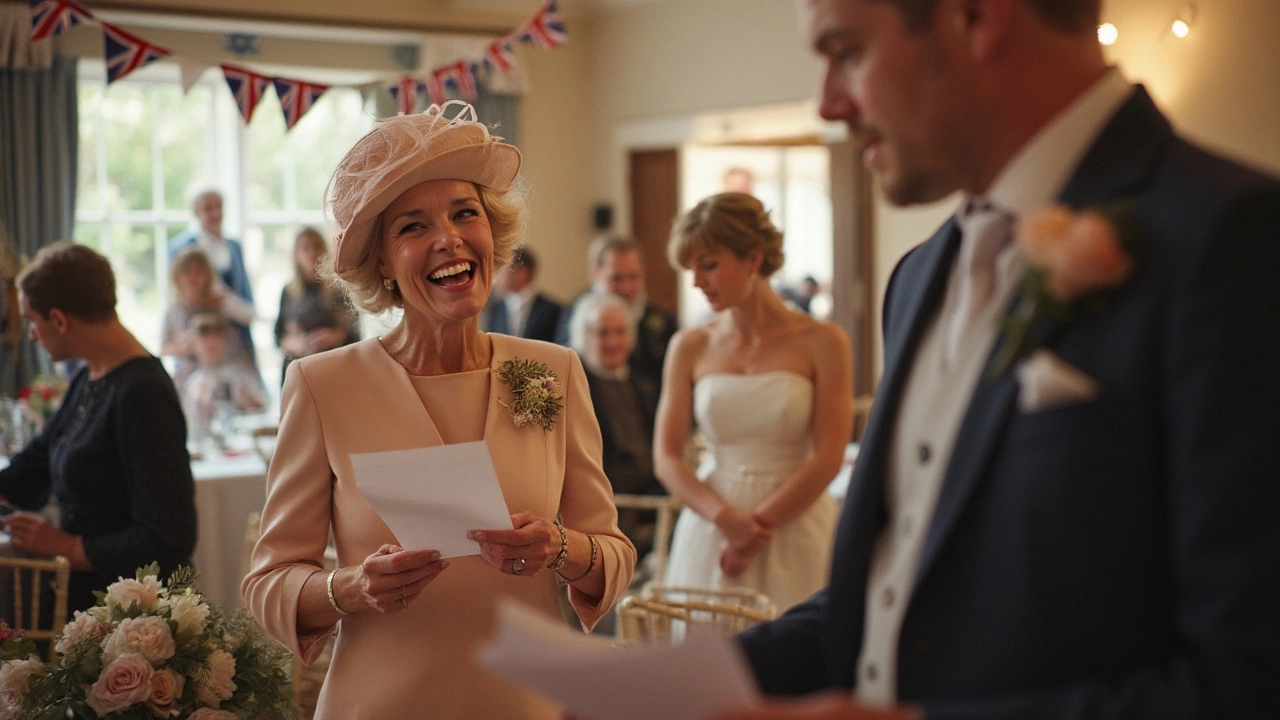Few family events stir up as much emotion as a wedding — especially if it’s your son at the altar. But with so much excitement in the air, it’s easy for a groom’s mom to accidentally steal the spotlight or add stress where everyone really needs support. Ready for a reality check? Being the mother of the groom comes with a silent rulebook, and lots of moms don’t even realize they’re breaking the rules until it’s too late. So, let’s get real about those unspoken “don’ts” and why they matter more than you think.
Forgetting the Balance: It’s Not Just About Your Son
It might surprise you, but many wedding planners agree that the most common blind spot for mothers of the groom is forgetting that this day isn’t just about their son. The wedding is a union of families, a celebration for both the bride and the groom. Sometimes, moms can get caught up in traditions or feel sentimental about letting their little boy go. But focusing too much on him, or your own ideas about how things should go, can unintentionally sideline the couple’s bigger picture.
This happens in subtle ways. For example, insisting on old customs that the couple doesn’t care about, or fighting for the guest list to include distant relatives when space or budget is tight. A recent survey by The Knot found that one in five wedding disputes comes from family guest list disagreements—and moms play a starring role.
Another classic misstep: focusing wedding speeches on your son’s achievements and personality, overlooking the bride or their shared story. Think of it like this: every anecdote about your son is lovely, but the day is about the couple’s new journey, not just his past.
So, what’s the right approach? Step back and check your priorities. Before advocating for your preferences, ask yourself: does this help the couple feel supported, or is it just a reflection of my own nostalgia? Communicating with both your son and his partner can clarify what matters most to them, and it shows that you respect the new family they’re creating together.
Micromanaging vs. Being Involved: Striking the Right Balance
No mom wants to be called a “momzilla.” But here’s where things get tricky: there’s a fine line between helping and micromanaging. Some grooms’ mothers dive headfirst into decision-making, from color schemes to centerpiece choices, believing they’re making things easier. In reality, it’s a top complaint from brides and grooms alike. Wedding Wire’s 2024 statistics show nearly 35% of engaged couples cite unsolicited parental input as a top stressor.
Think of wedding planning as a team sport — you’re on the roster, but you’re not the coach. Being too hands-on can leave the bride feeling overshadowed or the couple feeling like they have to explain, justify, or even defend their choices at every step. This is especially true if your son is less detail-oriented about the wedding, and you start to fill that gap. It’s natural to want to be useful, but sometimes offering a listening ear is more valuable than guidance.
If you’re worried about being left out, communicate what you’d love to help with and ask the couple how you can support them. Set boundaries—offer help only where it’s genuinely wanted. Sometimes, just letting them know you trust their judgment does wonders for everyone’s mood and confidence.
Here’s a tip: instead of pushing for your ideas, propose options or ask how you can help lighten their load. Maybe the couple could use a hand researching rehearsal dinner locations or organizing guest accommodations. Both practical and respectful—a win-win.

Breaking Wedding Etiquette: Pitfalls with Outfits, Traditions, and Family Feuds
Let’s talk about wardrobe choices. It’s tempting to want to look stunning for your son’s big day, but there are a few unwritten rules. Wearing white, cream, or even champagne colors is usually a no-go—it’s too close to the bride’s territory. Yet, in a 2023 Brides magazine poll, 7% of wedding guests (and mothers of the groom) confessed to wearing something “accidentally bridal.”
Your dress should complement, not compete. Traditionally, the bride’s family shares their color themes with you, so you can avoid clashing or standing out in a jarring way. And while you might love dramatic jewelry or flashy makeup, consider the vibe of the event and the couple’s preferences. If in doubt, ask for guidance rather than risk awkwardness in the family album.
There’s also etiquette about who hosts what, who gives toasts, and which traditions belong to each side of the family. For example, it’s the groom’s family who typically hosts the rehearsal dinner. Some moms might be tempted to hijack the main event, but sticking to your lane smooths out family dynamics. Mixing up roles, especially if you downplay the bride’s family’s contributions, can breed quiet resentment.
Family feuds are another minefield. Bringing up unresolved issues or holding court with family gossip is never a great wedding move. These events are pressure cookers for old drama—if you feel emotions bubbling up, take a breather. The last thing your son (or the couple) wants is their day overshadowed by tense glances or whispered arguments.
| Wedding Etiquette Mistake | Impact Score (1-10) |
|---|---|
| Wearing white or ivory dress | 10 |
| Starting family arguments | 9 |
| Overstepping decision boundaries | 8 |
| Forgetting to acknowledge the bride | 7 |
| Pushing unwanted traditions | 6 |
The big takeaway? Wedding etiquette is about harmony and respect. Dressing well, behaving thoughtfully, and staying out of the drama keep all eyes on the happy couple, where they belong.
Common Traps: Trying Too Hard and Getting Overly Emotional
Here’s something not everyone admits: weddings can bring out both the best and the worst anxieties in us. A lot of grooms’ moms feel pressure to be the perfect host, dress, or speech-giver. It’s easy to overcompensate—maybe by buying extravagant gifts, over-planning events, or breaking into tears over every toast.
But doing too much, or letting emotions get the better of you, can throw off the balance. Guests notice when a mother is taking over, putting herself at center stage, or getting weepy and dramatic. It makes everyone tense. The couple might feel like they’re parenting their own parents, and that’s not fair on their big day.
Instead, try focusing on genuine support. Find small, meaningful ways to connect with your son and his partner in the run-up to the wedding. Maybe a handwritten note for the morning of the big day, or quietly organizing photos the couple will treasure.
Keep a sense of humor. Laughter is an underrated wedding stress cure. When you’re lighthearted, your son and his partner will feel safe around you, not on edge. Bottom line: being the supportive, easygoing mom everyone remembers fondly is worth far more than being seen as the perfect planner.

Supporting Without Taking Over: The Gifts Moms Can Give
Sometimes, the best help is invisible. Little acts of kindness, quiet encouragement, and thoughtful gestures behind the scenes create the warmest memories and the least drama. For example, making sure distant family gets welcomed, checking in with vendors without stepping on toes, or smoothing over travel hiccups for guests—all of these go a long way.
It’s also helpful to remember your influence, even outside the planning. Relationships between the two families, and your acceptance of your child’s partner, set the tone for the future. Avoid backhanded compliments or comparisons—focus on what the couple does well together. Offer a genuine, warm welcome to your new family member.
One last tip: capture the wedding, but don’t be glued to your phone. Snapping a few photos is lovely. Watching the vows with your own eyes, not through a screen, is priceless.
- Ask for, don’t demand, involvement.
- Let the couple handle their guest list drama.
- Don’t second-guess their choices (from food to music to flowers).
- Stay tuned in to what the couple really wants.
- Mother of the groom: Support, don’t overshadow. It’s the best gift you can give.
The spotlight’s big enough for everyone, but it only shines when you work with—not against—the people your son loves.
